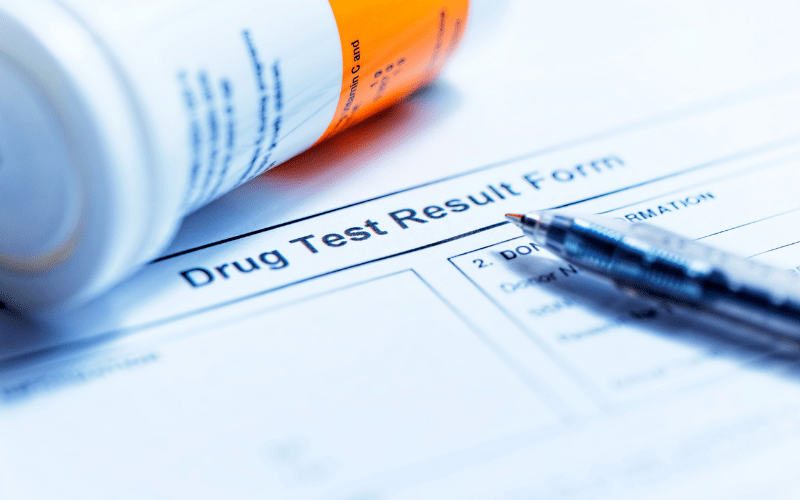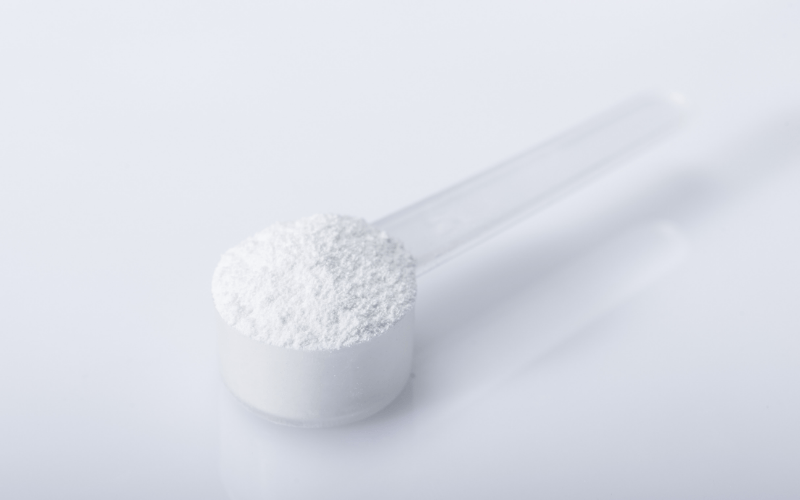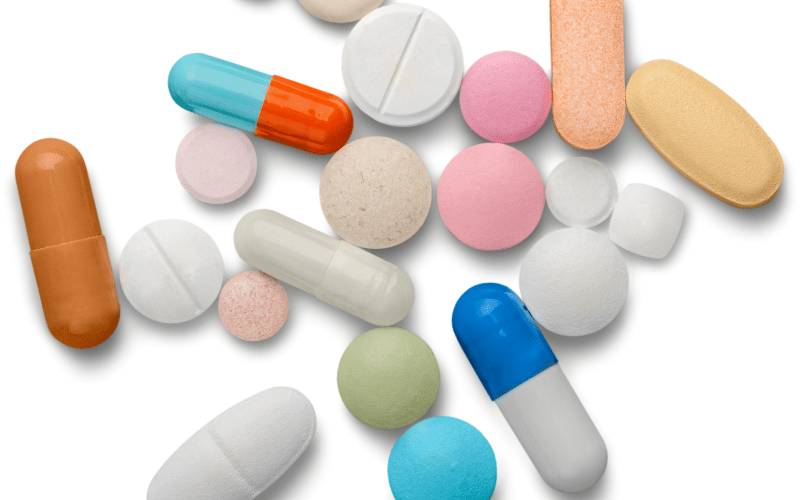Although it isn’t common in general, there are some professions that require you to undertake drug testing every once in a while. For example, if you work in the police or if you have a job that entails operating heavy and dangerous equipment or vehicles then drug testing may come as standard every so often.

Athletes preparing for competitions or tournaments may also have to take drug tests prior to competing to ensure they are not on steroids or taking any other illicit performance-enhancing drugs. Regardless of the reason you may be drug tested, it makes sense that you’d want to be as prepared as possible.
If you are currently working towards muscle building goals or improving your general physical performance, you might be wondering if taking creatine will become a problem for passing a drug test. Keep reading to find out how the two relate!
There is a widespread consensus that creatine is not and cannot be considered an illegal substance or illicit drug. Because creatine is naturally produced by the human body and because it is found in many foods including lean red meat, fish, and dairy products, it would be nonsensical for any authoritative body to deem it illegal.
That would be akin to considering insulin, urea, or iron illegal substances.
In many ways, this should answer your question and mitigate your concerns, however there may be certain circumstances where the line is slightly more blurred.
Many athletes and sportspeople use creatine to supplement their diet and exercise regimens in order to gain more muscle and enhance their endurance and stamina. In purely recreational situations, there’s nothing wrong with this at all, especially if you’re only working out or bodybuilding for your own satisfaction.

The grey area with regards to creatine and drug testing emerges when you introduce the idea of competitive sports.
Whilst in most countries it is not illegal to take creatine and therefore it shouldn’t affect the results of a drug test, there may be anti-doping processes where particular sporting authorities do not allow competing athletes to take creatine supplementation.
The best advice in this area is to check and double check the rules and regulations of the particular sport or competition you’re concerned with. There should be detailed information about what is allowed and what isn’t as well as what tests you’ll have to undertake prior to being accepted.
If you regularly take creatine to boost your exercise performance and strength training but want to compete in a competition that doesn’t allow athletes to be on creatine supplements, you should stop taking the supplement between 4 and 6 weeks prior to any drug tests you’ll need to do, as this is generally how long it takes for creatine supplements to be completely flushed out of your body.
Because creatine is naturally occurring in a lot of foods, it’s unlikely that any sporting authority would be overly critical of it unless the levels detected by tests were abnormally high. That said, it’s still best to make sure you know what the rules and expectations are.
As stated above, creatine is a naturally occurring organic compound that our bodies themselves produce, and it is also found in foods that are commonly enjoyed by people all over the world. In essence, these are reasons enough for creatine to be ignored in blood tests.
In the interest of mitigating your fears even further, think about this: creatine supplements are merely another dietary supplement people take with the intension of improving their personal health. With stronger and more energy-efficient muscles, we’re in a better position to look after ourselves and live healthier lifestyles.

Creatine is not an illegal drug or a recreational drug, or an addictive substance. Although many people confuse creatine with anabolic steroids, it is not the same thing and does not work in the same way. Whereas anabolic steroids are class C substances under the Misuse of Drugs Act 1971, creatine is not.
The most commonly used form of creatine supplementation is creatine monohydrate which is also the most heavily tested and regulated form that exists, again making it very unlikely that it would affect a drug test.
Despite the generally benign or beneficial effects of supplements and prescription drugs, there are many kinds that will result in a failed drug test or false result. Some of these may make sense to you, but some will probably come as a surprise!
These are a few different supplements and medications that can cause you to fail a drug test or may result in false positives:

If you know you’re going to be drug screened, let the medical practitioner administering the test know about any of the above that might affect your test results. If your test does come back with that you suspect to be a false positive result, you can request a retest.
There are three main types of drug test: urine, blood, and sweat/saliva. The type that is most commonly used and heard about is the urine drug test where, as the name suggests, a urine sample needs to be provided in a special cup to be sent to a testing laboratory.
These tests are usually very efficient, and results can be turned around quite quickly. If analysis shows that there are insufficient levels of certain compounds, or even absence of said compounds, then the test could be rendered inconclusive, and you’ll likely have to take a second one.
On the other end of the scale, if analysis picks up anything that shouldn’t be in the drug test sample, the test will fail automatically.
Blood tests are less common as they are more invasive and can be triggering for some people (eg a recovering drug addict might find the needle triggering whereas a urine test may be more suitable), but samples are collected and sent off for analysis in similar ways to urine samples, and tests can be inconclusive or fail for similar reasons.
Sweat and saliva tests are gaining popularity as the method for acquiring samples is quicker, easier, and less intimate than blood or urine samples. They are also much faster to process than urine or blood which is another reason for their increased prevalence.
Aside from being a health and fitness supplement, creatine has also been widely researched for its potential in lessening the symptoms of several medical conditions.
Although majority of creatine-centred medical trials have only been carried out on animals and many human trials are still pending, there is evidence to suggest that creatine supplements can be used to treat some neurological conditions such as epilepsy, Parkinson’s, and brain and spinal cord injuries.

Studies looking at vegetarians and organic compound deficiencies also found that older people and people following vegetarian or vegan diets also benefitted from supplements of creatine. There is also research that suggests small dosages of creatine may help to combat low blood sugar, fatty liver disease, and muscular atrophy although studies are ongoing.
In a sentence, it’s very unlikely that you’ll fail a drug test because you’re taking creatine. As with anything, there will be exceptions but, in this case, these exceptions will be extremely rare. The most important thing to keep in mind is that you understand why the drug test is being carried out and what the relevant expectations and regulations are.
Creatine is not an addictive substance so there’s no chance of you becoming biologically dependent on supplements, meaning you’re not at risk of substance misuse. The only way in which you might find yourself relying on it is in a superficial sense if your body image is dependent on sustained creatine use.
As with any supplement or dietary additive, you need to exercise a degree of caution when taking creatine in order to ensure you don’t overload your system and damage your kidneys, or take unnecessary amounts which could lead to issues like hair loss. You can read more about the links between creatine and hair loss here.
The risks associated with creatine are relatively small and it is considered to be one of the safest supplements on the market. Any risks that may arise can be easily mitigated by responsible use. Only use creatine as a supplement to a healthy diet and plenty of water.